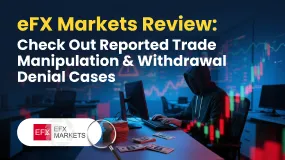Abstract:A broker and a brokerage charge are probably not unfamiliar terms to traders and investors. However, you should not only study what they are, but also what they do (and how much you should pay).

A broker is a person or an organisation who assists you in completing your transaction. A brokerage fee is the money that compensates the service automatically.
The most common type of brokers are stockbrokers. That said, there are also other types of brokers in real estate or property, mortgage brokers, and in business, mostly B2B.
Brokers mostly charge you money in two varieties of payment. Respectively, they are percentage-based and flat rates. Depending on the brokers, the amount varies.
While brokers mostly handle the execution of transactions, they also sometimes charge for other services too such as regular reports. This, in addition, underlines the importance of knowing the right brokerage fees as people oftentimes pay brokers inappropriately in contrast to the services.
The Right Brokerage Fee
The right brokerage fee does not directly translate to the exact amount of percentage you have to pay. Instead, the right one means that you ensure that your brokers charge you the right amount according to the services they provide.
For starter, you can inspect the types of brokers you are dealing with. Mainly, there exists three types of brokers who offer different services at different prices.
Firstly, if you are using a full-time service broker, you can expect to receive services such as transaction assistance, research reports, tax consultation, and so forth. Per clients managed asset, the fee mainly ranges around 1% up to 2%.
Secondly, the downgrade version of a full-time broker is a discount broker. Unlike the preceding, discount brokers generally handle transactions only. Their commission is also lower and mostly flat.
The last-but-not-least type is the online broker which handles transactions online. Unlike the previous two, the fee for this broker depends on the broker itself. As they are a lot cheaper, their services are also a lot limited.










